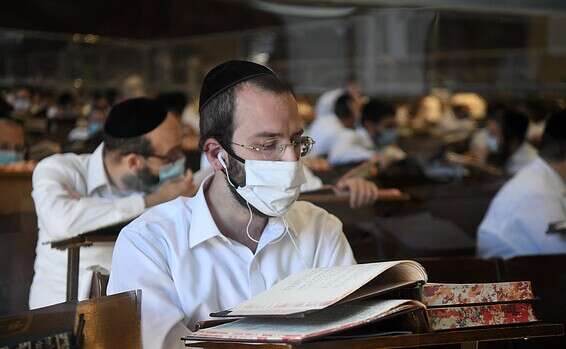As part of the Arrangements Law that will accompany the state budget for 2023, the Ministry of Finance is proposing a reform in ultra-Orthodox education that will dramatically reduce the budgeting of ultra-Orthodox institutions.
As part of the proposed reform, the law on unique cultural educational institutions will be amended so that their budget will be 30% of the funding unit instead of the current 60%.
In other words, the budget for the "small yeshivas", in which core studies are not taught, will be reduced by half and will be 30% of the total budget that high school students receive in formal education.
The Arrangements Law is a collection of reforms that the Treasury is interested in promoting within the state budget.
The Arrangements Law for 2023, the draft of which reached Israel Today, contains 30 reforms in various fields, including the reforms in the field of education.
It should be noted that at this stage this is only a draft, and it is not at all certain whether the coalition will be able to transfer the budget.
Minister of Finance Avigdor Lieberman,
The rationale behind the move is to encourage "ultra-Orthodox high schools" while reducing "small yeshivas."
Many ultra-Orthodox see a high school yeshiva (or ultra-Orthodox high school) as a threat and something that is contrary to their lifestyle.
The draft Arrangements Law states that the goal is to encourage core studies among ultra-Orthodox students in order to integrate them into the employment market.
100% financing
In addition, the Ministry of Finance, together with the Ministry of Education, proposes to formulate a "budget by achievement" program.
As part of the program, white educational institutions in grades 1-8, which are under the supervision of the Haredi district of the Ministry of Education (recognized non-official institutions), will receive 100% funding under conditions that will meet the entrance test for students.
"The program will stipulate that only an institution entitled to a minimum percentage of its registered students pass an external test in three areas - mathematics, English and Hebrew with a minimum grade to be determined - will be allocated a designated budget for each student who passed the external test," the draft reform said.
An ultra-Orthodox demonstration (those photographed have nothing to do with the news), Photo: Yoav Ari
"One of the significant barriers to the integration of ultra-Orthodox in the labor market is the lack of basic education and the acquisition of necessary skills. This issue is even more significant among ultra-Orthodox men. In the first quarter of 2022, the employment rate aged 64-25 among ultra-Orthodox women was 81.6% Among ultra-Orthodox men. In addition, in the 2009-2010 school year, 58% of ultra-Orthodox women in at least one matriculation examination, compared with 15% in the rate of examinees among ultra-Orthodox men.
"According to a recent estimate by the Chief Economist's Division of the Ministry of Finance, without a change in employment rates among ultra-Orthodox men, the loss of GDP in the cumulative economy by 2060 is expected to reach NIS 6,708 billion, representing a 13% GDP loss."
Changing the manner of subsidizing daycare
The draft Arrangements Law also indicates that the Ministry of Finance is interested in making an order regarding the subsidy of after-school programs.
Instead of the subsidy being determined according to the socio-economic clusters of the authorities where the children live, the Ministry of Finance proposes that the subsidy be made according to the income test of each family.
The draft states that there will be no change in the level of eligibility for a subsidy for a child in special education, and it will continue to remain uniform and identical to the subsidy given today, regardless of an additional income test.
An ultra-Orthodox family in Modi'in Illit (those photographed have nothing to do with the news),
Today, government assistance for after-school programs for children ages 3-5 is done as follows: For after-school programs located in local authorities ranked 1 to 5 in the socio-economic index of the Central Bureau of Statistics, there is a support test by the Ministry of Education (Nitzanim program). A child in the same local authority, regardless of the economic situation of his parents, and only in accordance with the socio-economic ranking of the local authority.
For local authorities in grades 6 to 7 there is a support test of the work arm in the Ministry of Economy and Industry in which eligibility is based on the financial situation of the child’s parents.
There is no support test for daycare centers located in local authorities rated 8 to 10. In the current situation there may be families in good economic condition in a local authority in a low rating, and vice versa.
Thus, the current allocation method may benefit families who do not need a subsidy, and prevent subsidies from families that need it.
Were we wrong?
Fixed!
If you found an error in the article, we'll be happy for you to share it with us

